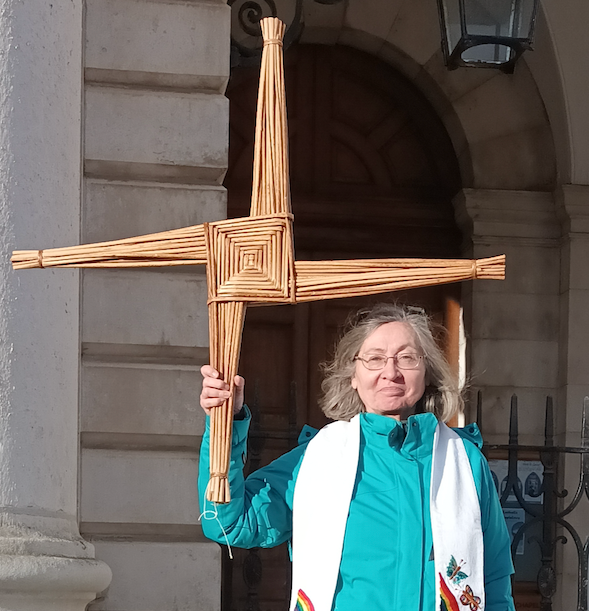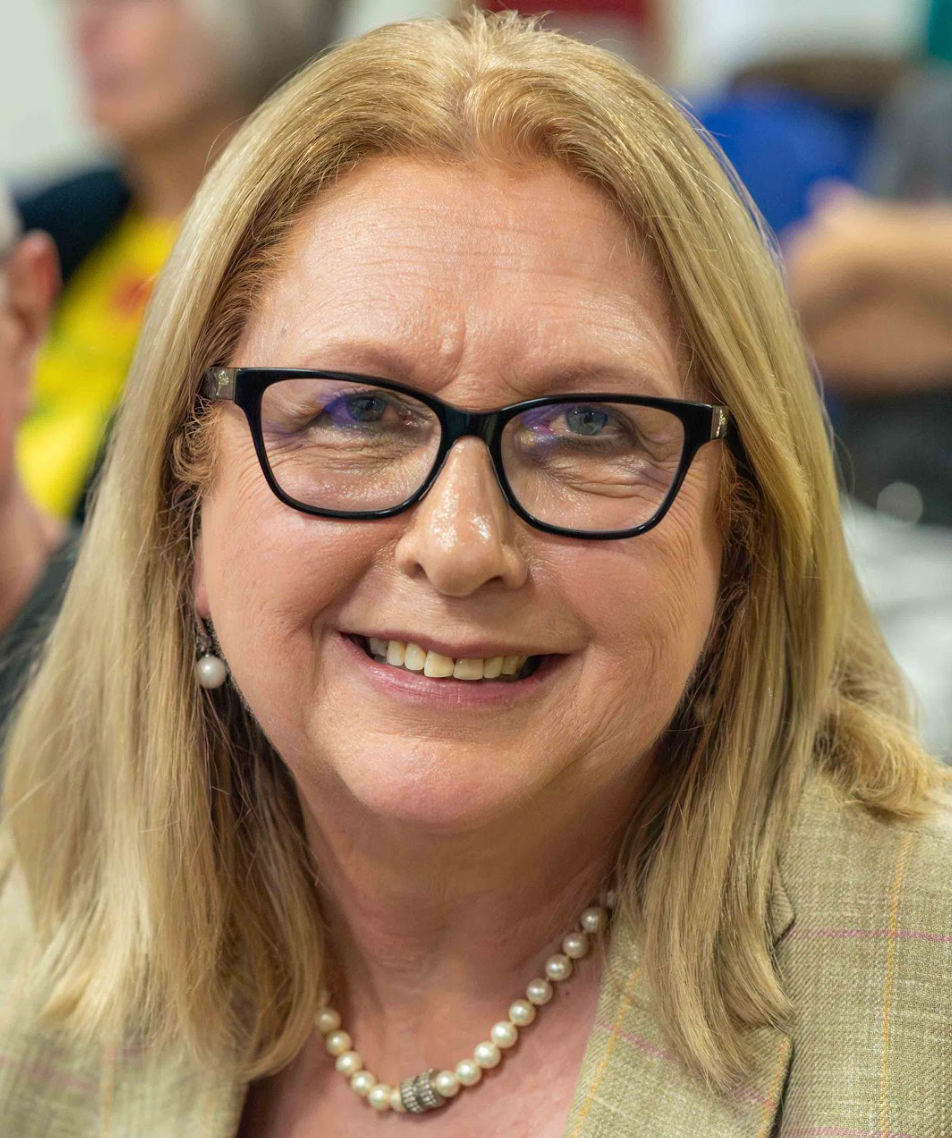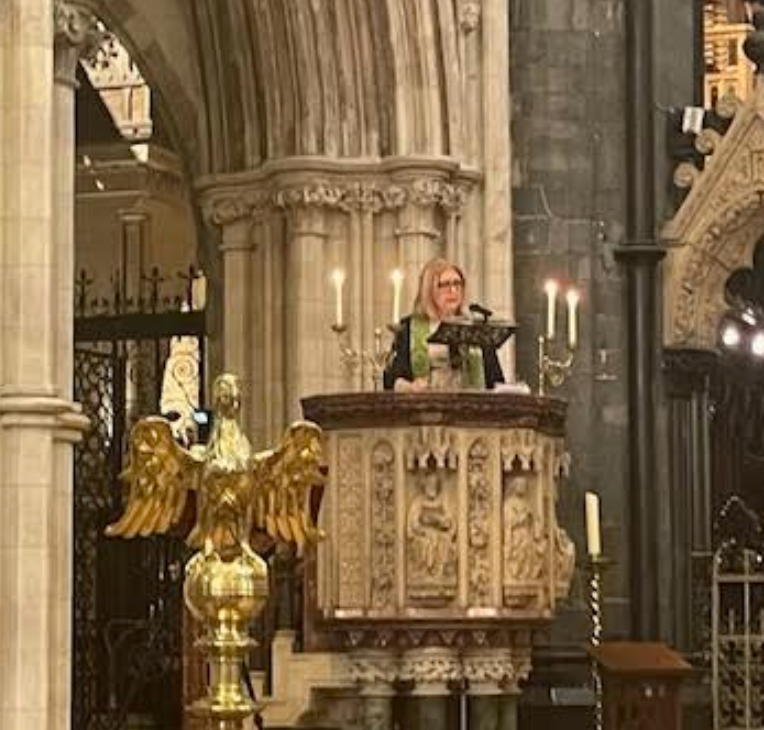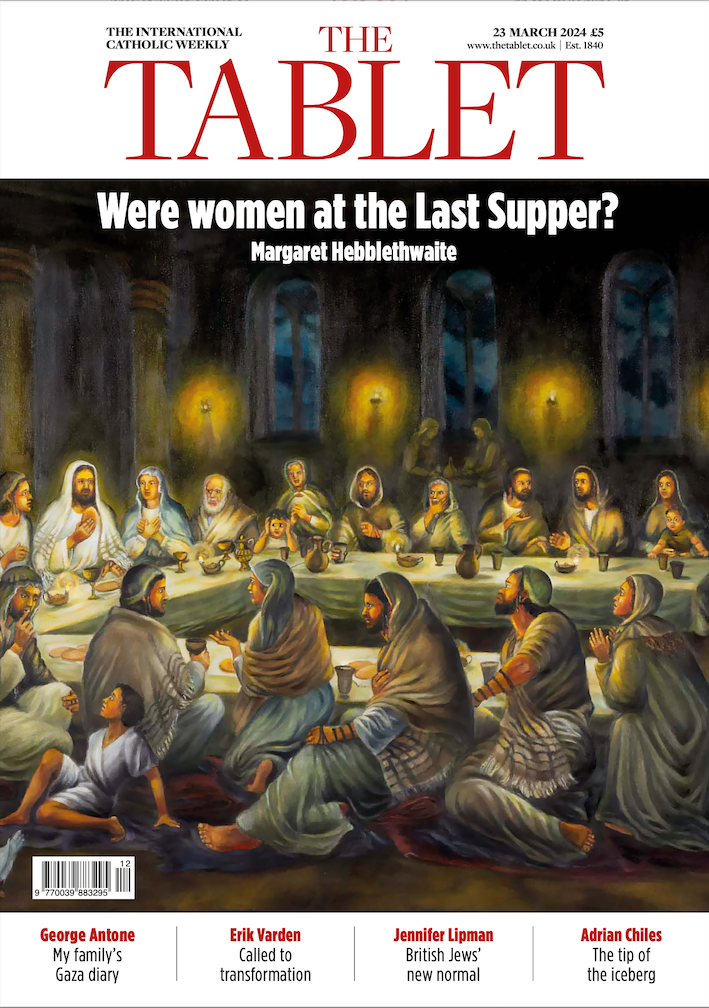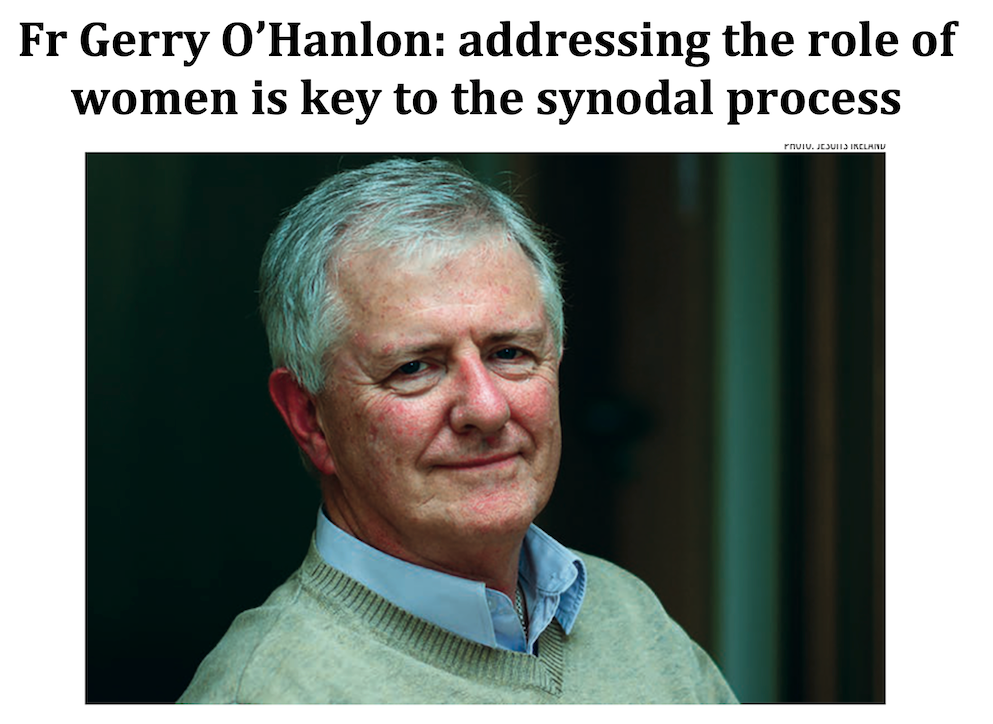Of Synodality and Closed Doors, Pain and Hope
First published in The Japan Mission Journal, Spring 2022, Volume 76, Number 1
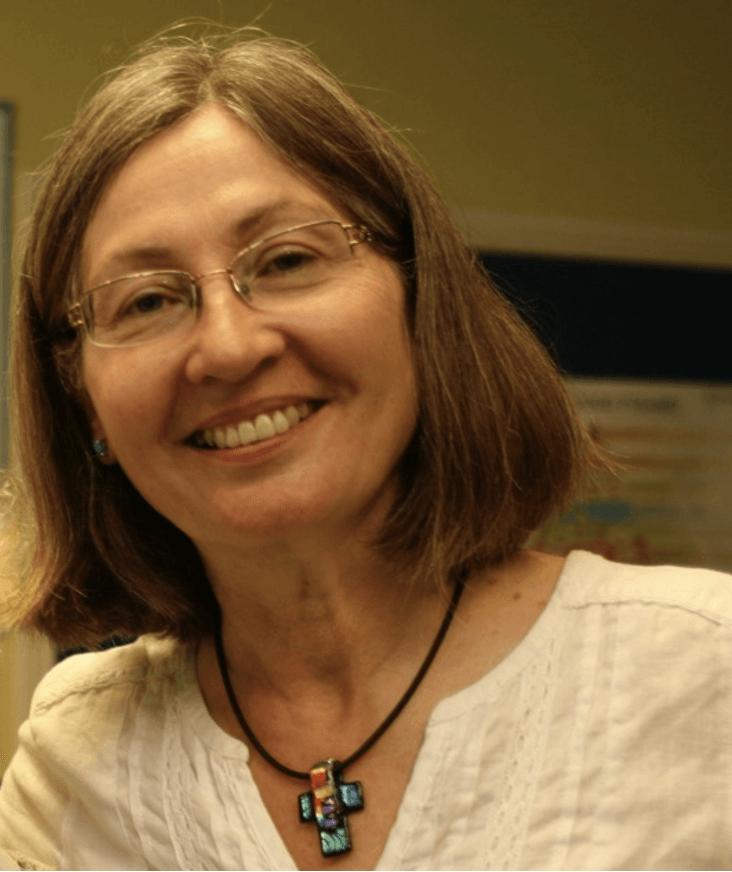
Soline Humbert, born in 1956, is a French-Irish, ministering as a spiritual director since 2006. She has degrees in History, Business Administration, and Ecumenical Theology from Trinity College, Dublin and diplomas in Catechetics and Spiritual Direction. She is a member of We Are Church Ireland. Soline is married, with grandchildren.
When I was asked several months ago to write an article on synodality, I was surprised but I agreed, albeit very reluctantly. I reckoned that after Christmas, when I would be actually writing it, that inner reluctance would have given way to a measure of enthusiasm. However the passage of time has done nothing of the sort, in fact quite the opposite. I also thought that by then I might be able to write about participating in an official synodal experience, but the archdiocese of Dublin is still in preparatory phase, so there was no help there.
I could of course attempt to write something theoretical, impersonal on synodality; after all I have studied ecclesiology and read enough learned articles, and listened to discussions about it. As I sat with and reflected upon this deep-seated reluctance, this lack of enthusiasm which was actually blocking me from even starting writing, what I discovered was a well of pain. For me, to write about synodality in an honest, authentic manner would necessarily mean engaging with this pain and listening to what it is telling me and sharing it, in all its vulnerability. There was no way of ignoring it.
By now, you who are reading this, will have realized that I am inviting you on a kind of journey, an inner exploration which is tentative, partial, not systematized, not offering you a worked out treatise. It will lead where it will....
The first thing which I have noted in myself is that I do not share in the enthusiasm that the word synodality and all that goes with it generates in so many, starting with Pope Francis. One Irish bishop was interviewed a few months ago on radio about it, and he was positively gushing about it. I would of course like to share in that enthusiasm, for it is an uplifting, positive emotion, but the reality is that I can’t.
The official guidelines for the Synod process state clearly that it must reach, include, people on the periphery of the church. I have asked myself: am I one of these people considered to be on the periphery? Yes, on the margins, and how did I come to be there? And where exactly is the center of the church? Is the center where the Pope, the curia, the bishop, the parish priest are? Who defines the center, and therefore the periphery? I like to think that the Heart of Christ is the center, and in that case I know there is room and a welcome for me there.
But in terms of the official, institutional church I am on the margins because the power center has pushed me out there. Or as the authorities would argue, I have put myself there, by my own misguided obduracy. All of my adult life the official church has been a cold house, a very cold house indeed. Whenever I have seen posters about domestic violence warning about situations ‘When home is where the abuse takes place,’ I have thought about the church, my spiritual home ‘where the abuse takes place.’ As long ago as 1995 in a seminar on the ordination of women in Dublin I described myself as having been spiritually abused. I did not say it lightly then, it cost me a lot to acknowledge it first to myself and then publicly. Now, nearly thirty years later I cannot but reaffirm it: There is widespread spiritual abuse in the church. I am not talking only about the kind of spiritual abuses committed by an individual confessor, spiritual director, or religious superior. I am talking about church rules, teachings, practices which do injury to one’s spirit and conscience, which are destructive and anything but life-giving. They are so much part and parcel of the church culture, have been sacralized and decreed as divinely endorsed, they are mostly not even recognized consciously as being abusive.
In a very recent interview Sr Jeannine Gramick of New Ways Ministries describes how she felt when she was investigated by the Congregation for the Doctrine of the Faith trying to pressurize her to abandon her ministry to LGBTI+ people. She said she felt then like’ ‘a battered woman.’ Indeed, there are countless people like her, like us.
From the time I experienced a sense of vocation to the presbyteral ministry in my late teens I have been at the receiving end of spiritual violence in the church and pressure by the authorities to ‘desist,’ to ‘recant.’ To put it somewhat crudely, I was to acknowledge I was either ‘mad, bad or sad.’ Being young and somewhat naively trusting it took me some time to realize that the church is a deeply patriarchal institution. My sense of vocation to an ordained ministry, the exclusive preserve of males, was perceived as a threat to this patriarchal power and quashed, using all means, including spiritual violence, all forms of exclusion, of silencing and the threat of excommunication.
I am now in my sixties, I have never lost that sense of vocation despite the church authorities’ determined efforts to kill it or to persuade me to abandon it. Pope Francis, who is all in favor of open doors, is only the latest pope to reaffirm that the door to women priests is closed. And while he is also in favor of listening and discernment, he has never extended an invitation to women like me to at least listen to our deep sense of calling and to our journeys with that vocation. Obviously he believes we have nothing of value to communicate, no truth to share, no word from the Spirit. It has been the official church policy and practice to this very day to treat us as non-persons, to shun us, to freeze us out. In a patriarchal church we simply don’t exist.
So what of synodality for women like me? The Irish bishop who was gushing with enthusiasm about the launching of the synodal process was also careful to explain there would be ‘’parameters’ to be respected. I know full well that who I am and what I represent is outside these carefully defined ‘parameters.’ That much has been drilled into me at every opportunity over nearly half a century: ‘You do not belong’ or ‘You can belong, but only on our terms and that means IF you agree you don’t have that vocation.’ Confronted with that ultimatum, I have chosen to sacrifice that kind of belonging to keep my integrity and to being faithful, as I perceive it, to the One who is faithful to me.
What does this synodal process mean for women like me after a lifetime of exclusion, threats, rejections, denigration? What does it mean when Pope Francis calls for openness to the Spirit and to new paths but repeats over and over again that the door is firmly shut in our faces?
Sr Nathalie Becquart in the Vatican Secretariat for the Synod recently said that two things were needed for the synod process: trust and humility.
I have faith and trust in God still. I trust in the Spirit wholeheartedly. But I have no faith left in the present church system and the leaders. It wasn’t always like that: I started off full of trust. And then along the way I realized I had no trust left, it had gradually been eroded by the repeated abuses, deceptions, manipulations, and lies. Once that trust was gone, it was truly gone. Something precious had died. Once trust has been squandered, destroyed, it takes a lot of efforts to rebuild it. People who want to be trusted again must show themselves worthy of that trust. Appeals such as ‘trust us, trust us’ no longer work when they are not backed with very concrete actions. As far as I am concerned, and I can only speak personally, I have experienced nothing, absolutely nothing, to restore my own trust.
What about humility? After all, that and obedience and patience, are deemed the cardinal virtues for women in the church. And yes I know, if I had any humility (as defined) I wouldn’t possibly think for a second God would call me, a (mere) woman, to be a priest. If I still do lack that kind of humility, it’s not for want of having been admonished repeatedly. But is that really what humility is, the humility of Mary of Nazareth and of her Son Jesus? Decades ago I came across a definition of humility by a French priest which made instant sense to me: ‘Humility is knowing one’s place and taking it.’ And with it, the painful realization that there is no place for me in the institutional church as it is.
The Synodal process culminating in the synod of bishops in Rome in 2023 means that the ultimate discernment will be in the hands of some men (males). Many women fear, with good reason, that their voices will not be heard. And many men, too.
Nearly thirty years ago I initiated, with two others, a petition asking for all ministries in the church to be equally open to women and men. It obviously struck a chord because, although it was pre-internet days making the process very laborious, we quickly gathered 10,000 signatures. After the primate of all Ireland Cardinal Daly refused to receive them we raised another 10,000. We divided them and sent them to all bishops in Ireland. A handful acknowledged them.
Pope Francis has said, quoting Yves Congar, that ‘we don’t need another church but a different church.’ It is my profound conviction that a church where men continue to claim to have the final word in decisions and to arrogate to themselves the right to place restrictions on women is just more of the same patriarchal church where spiritual abuses of power are endemic.
Dear Pope Francis, you tell me that this door which was brutally shut in my face by your predecessor Pope Saint John Paul II will remain shut for ever. Why do you want me to take part in this synodal process when you have already indicated that whatever I might share of my spiritual life will be ‘inadmissible’ by you and your fellow bishops, and will make absolutely no difference to that door remaining shut?
Whatever trust and hope I have do not come from a pope but from the One who speaks in the depths of my being: ‘See, I have opened a door for you that no one can shut’ (Revelation 3:8).
Can the synodal process as presently framed and organized give birth to a Church of Communion for which we long, while insisting on closed doors for women? I remain in pain and in hope.
Soline Humbert
